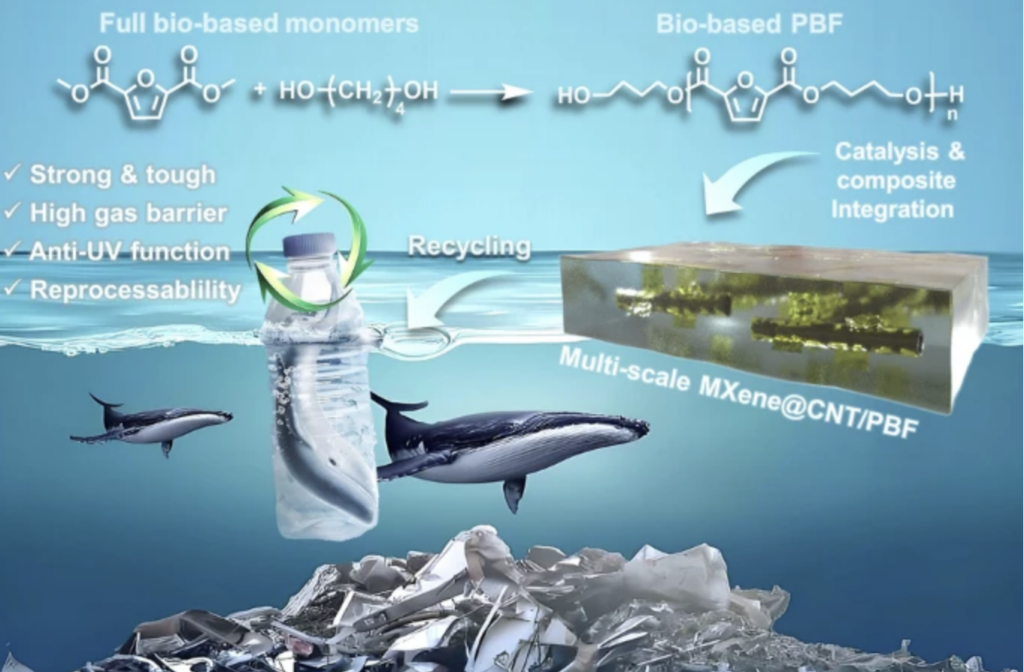http://en.people.cn/n3/2025/0310/c90000-20287554.html
https://link.springer.com/article/10.1007/s40820-025-01682-8
Researchers from the CAS Ningbo Institute of Materials Technology and Engineering have synthesized a novel bio-based polyester nanocomposite with comprehensive performance and reprocessability, utilizing 2D nanosheets to wrap one-dimensional carbon nanotube fibers. The fiber can serve as a catalyst, nucleator, and interface enhancer of polyesters.
Ti3C2Tx-based MXene nanosheets are used for decorating carbon nanotube (CNT) and obtaining the structurally stable and highly dispersed dendritic hetero-structured MXene@CNT. Bio-based MXene@CNT/polybutylene furandicarboxylate (PBF) (denoted as MCP) nanocomposites are synthesized by in situ catalytic polymerization and hot-pressing.
Thanks to the multi-scale energy dissipated structure, the newly developed nanocomposite achieved exceptional mechanical strength, stiffness and toughness. Compared with most commercial bio-based materials and plastics, the novel nanocomposite shows superior ultraviolet resistance, solvent resistance, and enhanced gas barrier performance against oxygen, carbon dioxide and water.
Moreover, the nanocomposite can retain 90 percent of its strength after five recycling cycles.

